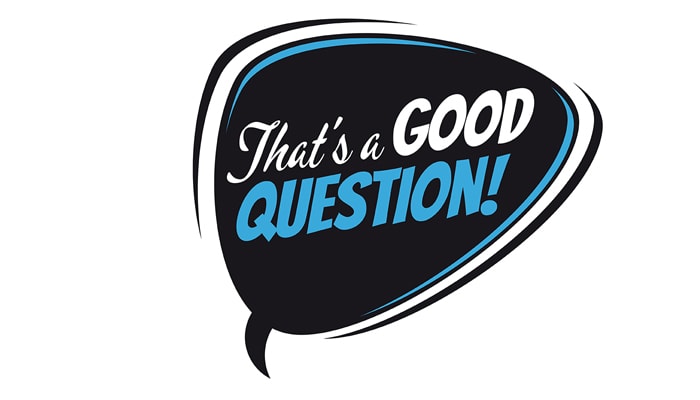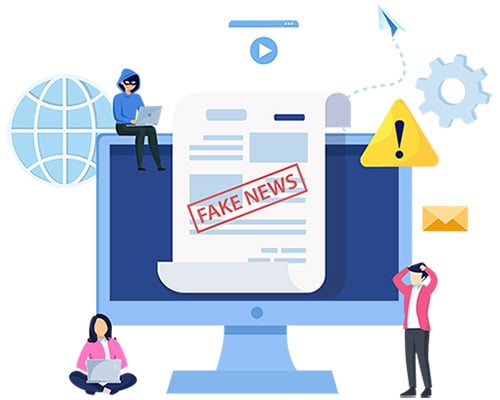Can We Ever Fully Trust AI in Supply Chain Management?

Artificial intelligence is transforming supply chains with real-time insights and predictive power—but is full trust realistic? Experts share the risks, benefits, and human oversight needed to make AI a reliable partner in logistics.
Artificial intelligence can absolutely be trusted, especially for tasks like inventory, sorting, and forecasting. However, it will always need guardrails. “Human in the loop” oversight ensures decisions align with company goals and mitigates risks, while manual overrides help handle complex or nuanced situations.
–Guy Yehiav
President
SmartSense by Digi
Yes, we can trust AI—but not blindly. In supply chain management, common AI tasks include forecasting and planning. Like humans, AI can express varying levels of confidence in its outputs. It’s up to humans to judge whether the reported confidence level is sufficient. That threshold varies by context—95% confidence might be acceptable for route optimization, but not for prescribing medication.
–Milan Luketic
Chief Technology Officer
Birdseye Security Solutions
Yes, AI can and should be a trusted tool for managing supply chains by offering improved visibility. Gartner predicts that by 2028 AI agents will power 25% of supply chain KPI reporting. While AI provides visibility, when coupled with process intelligence (PI), companies gain even more trustworthy data-driven capabilities for better decision-making.
–Kerry Brown
Transformation Evangelist
Celonis
AI has already proven helpful in tasks such as supply planning, transportation optimization, and factory scheduling. But we haven’t even scratched the surface of how AI can be used in SCM, and we will have to explore and test many new AI use cases before we can fully trust and rely on AI as the sole solution to SCM.
–Ashton Roberts
Manager of Supply Chain and Analytics
Bragg Live Food Products
Full trust in AI is a gradual journey. AI models are only as good as the data they are trained on, and they require constant refinement and oversight. The power of AI must be combined with human expertise. This hybrid approach ensures that while AI drives efficiency and innovation, human judgment is always present to manage nuances and unforeseen challenges. Ultimately, trust in AI will grow with transparency, accountability, and continuous improvement.
–Brian Weiss
CTO
Hyperscience
AI is already helping to make better decisions across inventory and supply chains, but trust comes from results. When AI helps you avoid overstocking or missing a delivery window, you trust it a little more. It’s not about blind trust. It’s about earned confidence, built with every smart decision.
–Ben Hussey
Co-CEO
Katana Cloud Inventory
A “trust but verify” approach is recommended. Treat AI as a co-pilot rather than an autopilot. Use AI to enhance human decision-making rather than replacing humans entirely. Prioritizing explainable and auditable AI models is crucial to ensure transparency and accountability. Most importantly, humans must remain in the loop, especially for strategic or ethical decisions.
–Ravi Bommakanti
Chief Technology Officer
App Orchid
It would be extremely difficult to ever fully trust AI in supply chain management, but that can also be true of any source of information or transaction. You should continue to know and understand your space and make sure you have verification methods in place.
–Felix Vicknair
Vice President of Supply Chain Solutions
Kenco
Full trust remains elusive due to inherent risks like data bias and system errors. Human oversight and continual evaluation are vital to mitigate these risks, ensuring AI complements human expertise effectively rather than replacing it entirely.
–Mat Witte
CEO
ORTEC Americas
Don’t Hand Over the Keys
 AI in supply chain management isn’t about blind trust—it’s about smart integration. AI enhances human decision-making, but it requires quality data and expertise. The key isn’t trusting AI alone, but combining it with human insight for smarter, faster decisions.
AI in supply chain management isn’t about blind trust—it’s about smart integration. AI enhances human decision-making, but it requires quality data and expertise. The key isn’t trusting AI alone, but combining it with human insight for smarter, faster decisions.
–Jeff Metersky
VP, Solutions Strategy
GAINSystems
Trusting AI in supply chains isn’t about handing over the keys—it’s about building a smarter set of co-pilots or agents. Blind faith? No. Informed reliance? Yes. The winners won’t be those who fear AI, but those who train it to drive with guardrails. In supply chain, it’s not “man vs. machine”—it’s “man and machine” that together win the race.
–Darpan Seth
CEO
Nextuple
AI can be invaluable in areas like demand forecasting and inventory optimization. But it isn’t perfect and can misinterpret trends and results. It doesn’t serve as a substitute for human-decision making, but a powerful tool to assist the process.
–Art Van Der Stuyf
Director of Supply Chain Strategy
iGPS Logistics
AI is the student; workers are the teachers. While AI handles most supply chain tasks, it depends on skilled support for complex issues. It can spot patterns, reference past solutions, and suggest actions. But it also flags problems, empowering experts to step in and resolve them.
–Tanguy Caillet
Global Supply Chain Lead
Genpact
Never ever, as long as the word “artificial” applies to the intelligence. Trust is kept whenever mistakes made (which is inevitable) are owned up to and compensated for. Will an AI system do that? Never ever. AI is not a person in law or fact. Trust along the supply chain is necessary; but it is a mutual understanding maintained between humans. If I trust a machine, will it trust me?
–Dr. Darren Prokop
Professor Emeritus of Logistics
University of Alaska Anchorage
AI bases decisions off algorithms. While this can be a powerful tool and create efficiencies while eliminating human error, there are always holes in an algorithm. AI lacks human critical thinking and experience that cannot be replaced. Customers need to trust they are working with account executives who care about their shipments—something an algorithm cannot do.
–Ryan Kean
CIO
Total Quality Logistics
We may never fully trust AI to completely manage the supply chain, but that’s a good thing. Human oversight ensures we apply judgment, context, and creativity where AI can’t.
–Jennifer Chew
VP of Solutions and Consulting
Bristlecone
AI enhances efficiency, but full trust is unlikely. As an industry, we’ve relied on computational models for 80 years, yet human judgment remains essential. Not everything can be predicted, and logistics operators can’t wait for models to catch up. End-to-end solutions will always require human oversight to manage errors, adaptability, and real-time decisions.
–Amy Dean
Vice President of Operations
SC Codeworks
Heck no…not yet…maybe never. With proper oversight and strategy we should increase our reliance on this support tool to help with tasks like: quoting, routing and delivery optimization, predictive tracking, and back-office operations.
–David Branson
VP of Project Management & Training
TA Services
AI is well-suited for data aggregation, validation, and summarization, but for complex tasks like predictive analysis and automated workflows, the results will only be as dependable as the underlying data and supervision. To successfully utilize AI for automated risk mitigation and ultimately autonomous, self-optimizing supply chains, robust supplier intelligence and human oversight are critical.
–Ilya Levtov
Cofounder and CEO
Craft
“AI won’t replace humans—but humans with AI will replace humans without AI,” said Karim Lakhani, Harvard Business School professor. Like past technologies, AI augments human capacity rather than replaces it, especially in supply chain management. Trust in AI begins with understanding how it works, paired with transparency from developers and users, and reinforced by governance and human oversight.
–Filipe Santos
Senior Product Manager
Descartes Systems Group
Always Proceed With Caution
 We can’t fully trust human intelligence—so why should we fully trust AI? In all seriousness though, AI is only as good as the data it’s working from and the humans who are teaching and training it how to operate. Garbage in, garbage out is an old adage, but it still applies in the AI era. You need strong data sources and experienced team members to make an AI application worthwhile.
We can’t fully trust human intelligence—so why should we fully trust AI? In all seriousness though, AI is only as good as the data it’s working from and the humans who are teaching and training it how to operate. Garbage in, garbage out is an old adage, but it still applies in the AI era. You need strong data sources and experienced team members to make an AI application worthwhile.
–Josh Dunham
CEO and Co-founder
Reveel
Can you fully trust the internet? There is good info on there, but there’s also a ton of misinformation. The same goes for AI—it’s a tool, not necessarily the truth. AI can supercharge supply chain management, but it can also amplify errors and bias. We need to question, audit, and push for transparency. Real leadership is harnessing AI’s power while keeping human judgment in the driver’s seat.
–Tara Milburn
President and CEO
Ethical Swag
Trust in AI for supply chain management requires the right foundation: high-quality data. The future belongs to those who combine human oversight with intelligent automation.
–Deepak Singh
Founder and Chief Innovation Officer
Adeptia
Not only can we trust AI in supply chain management, there’s a strong case that not using it may disadvantage your organization. AI can uncover data-driven insights and sourcing opportunities that humans alone might miss. Combined with human judgment and relationship context, this collaboration drives smarter, more innovative decision-making.
–Shannon Hynds
CEO
Quickcode
We can not fully trust AI in supply chain management. Fully automating processes without oversight would be a dangerous proposition. An effective way to handle this is to allow AI to handle the manual processing and analytics and then rely on oversight using qualified people to ensure that the automation is being handled in effective ways.
–Walter “Mitch” Mitchell
CEO
Tai Software
We may never fully trust AI on its own in supply chain management, and we shouldn’t. AI can accelerate decision-making and eliminate a lot of manual work, but human oversight is still critical. Judgment, context, ethics, and relationships are all things AI can’t and won’t replicate. With the right human-in-the-loop approach, AI becomes a powerful partner, not a 1:1 replacement.
–Kristjan Lillemets
Chief Product Officer
Magaya
Short answer…not yet. AI has huge potential, but also real risks if not used carefully. The winning approach pairs smart tools with strong oversight and skilled people, and as systems mature and prove reliable, they’ll gradually earn more autonomy in supply chain operations.
–Brett Webster
Director, Product Management
Dematic
Trust in AI starts with real-world results. When systems are trained on diverse data across commercial operations, the models become more reliable each day. Engineered with human-centered design, physical AI enables productivity gains across warehouse operations and helps build a supply chain that’s smarter, safer, faster and more dependable.
–Jeff Mahler
CTO and co-founder
Ambi Robotics
We can’t fully trust AI in supply chain management—but we can trust it enough to accelerate decisions, uncover patterns, and reduce inefficiencies. Human oversight remains critical, but when paired with data transparency and responsible design, AI becomes a powerful co-pilot—not a replacement—for modern supply chain strategy.
–Jason Roberts
SVP, Digital Enablement
MODE Global
We’re on our way to being able to trust it. There’s still work to be done to get the right operational context, guardrails and feedback loop per specific use case, but AI’s capacity to recognize data patterns quickly and make both consistent and accurate decisions is second-to-none.
–Alex Lazzari
Product Owner – WES
Tecsys
No, I don’t think we can fully trust artificial intelligence, but AI tools are only as good as we make them. They will evolve over time, but that comes with the aid of human interactions. AI is not made to replace humans in Logistics, but it is designed to assist in most daily activities.
–Jeff Goins
Director of Carrier Sales
Circle Logistics
